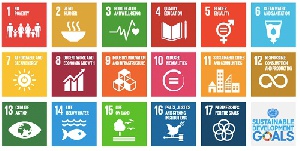The contribution of Ghana's Agricultural sector to GDP has been poor over the years. Undoubtedly, majority of the world's poor lives in rural areas and these people are engaged in small scale farming.
Due to several challenges ranging from land tenure system, unavailability of funding’s, climate change impacts, markets and absent of extension services, the agricultural sector now contribute less to GDP than the service sector. In Africa, most expert and research has proven that the Agricultural sector is the area when well exploited with the right technology and skills will help alleviate poverty and hunger. But what do we see? Your guess is as good as mine; the sector is unattractive for youth to venture into.
Government efforts in improving the sector through the implementation of programs and policies are yet to see the day of light. Most of these agrarian policies to me are not target based. Example, the planting for Food and Jobs which was introduced by government is a laudable policy/program. However, this flagship program only targets those who are "proven farmers". The question is what happens to the landless? Does government have any package for them as well?
Well if you care to know, the Landless farmers according to FAO (1968), refers to hired agricultural workers who do not rent, own or sharecrop any area of land. These people possess only their physical labour power and skills acquired through experience. Such categories of rural poor are most at times exploited and have experienced severe hunger and food insecurity.
For Ghana to achieve the SDGs 2030 agenda, especially (End poverty and Zero Hunger), most of the agrarian policies that will be implemented should be target based. Without that, the poor will continue to be poorer and the middle class or the rich will continue to be rich. I urge government to look at all the categories of the poor and ensure there is fair policy that will be of benefit to all.
Vozbeth Kofi Azumah
Founder & president of Reality Ghana,
Opinions of Wednesday, 20 September 2017
Columnist: Vozbeth Kofi Azumah



















